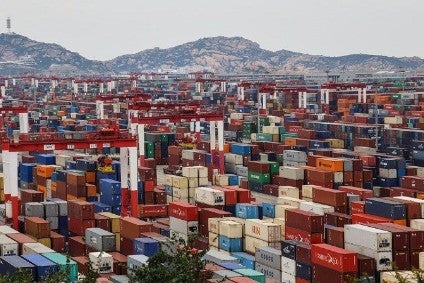
The latest monthly round-up of updates to key free trade agreements and trade preference programmes involving the US, EU and Canada covers developments in November 2018. Trade agreements, rules of origin, tariffs and schedules are all covered in depth in the re:source by just-style strategic planning tool.
UNITED STATES
US-Mexico-Canada Free Trade Agreement (USMCA)
On 30 November 2018, the United States, Mexico and Canada officially signed the US-Mexico-Canada Free Trade Agreement (USMCA), commonly called NAFTA 2.0. Before taking effect, the agreement still needs to be ratified by each country. In the United States, to meet the Trade Promotion Authority (TPA) timeline requirement:
- The Office of the US Trade Representative (USTR) has until 29 January 2019 (60 days after the President signs the agreement) to release a report describing the required changes to US law.
- The US International Trade Commission has until 15 March 2019 (105 days after the President signs the agreement) to release an assessment of the new trade agreement.
- After this, the Trump administration will need to work with Congress to develop legislation to approve and implement the agreement.
Additionally, on 6 November 2018, leading US textile and apparel associations testified before the US International Trade Commission (USITC) to provide industry assessments of the USMCA. While they have expressed overall support for the agreement, they hold divided views on the textile and apparel specific rules of origin provision in USMCA – particularly the tariff preference level (TPL). In general, the US textile industry welcomes the changes that limit the use of non-USMCA-originating textile inputs; whereas US fashion brands and retailers want more flexibilities in textile material sourcing.
African Growth and Opportunity Act (AGOA)
On 2 November 2018, President Trump announced his intent to terminate the eligibility of Mauritania for trade preference benefits under the African Growth and Opportunity Act (AGOA), as of 1 January 2019, due to forced labour practices. According to the USTR, the United States will continue to monitor whether Mauritania is making continual progress toward the protection of internationally recognised worker rights (including with respect to forced labour) in accordance with the AGOA eligibility requirements.

US Tariffs are shifting - will you react or anticipate?
Don’t let policy changes catch you off guard. Stay proactive with real-time data and expert analysis.
By GlobalDataHowever, the Trump administration’s action will have limited impact on apparel sourcing. Since Mauritania is not eligible for the apparel provision in AGOA, few US fashion brands and apparel retailers source from the country.
DR-CAFTA
The Earned Import Allowance (EIA) programme under the United States-Dominican Republic-Central America Free Trade Agreement (DR-CAFTA) expired on 1 December 2018. The EIA programme was established as an amendment to the DR-CAFTA, under the Andean Trade Preference Extension Act of 2008, and became effective on 1 December 2008 for a 10-year period. The EIA programme provided duty-free entry from the Dominican Republic into the US for certain apparel under the condition that for every two square metre equivalents (SME) of apparel assembled using US yarn and fabric, one SME would be allowed to enter the US duty-free using third-party yarn and fabric.
Discussions are underway on whether to renew the EIA programme after its expiration.
EUROPEAN UNION
Brexit updates
On 25 November 2018, the UK and the European Union (EU) approved the Brexit withdrawal agreement. Under the agreement, in late March 2019 the UK will enter a standstill transition period until December 2020. The transition period, however, could then be extended until December 2022. During the transition period, the UK will stay in the customs union with other EU members, meaning the UK will continue to enjoy the duty-free market access to other EU members and UK’s eligibility for all EU free trade agreements and trade preference programmes will remain unchanged. However, staying in the customs union also means the UK will not be able to sign a new free trade agreement with any other country until after the transition period.
CANADA
Comprehensive and Progressive Agreement of the Trans-Pacific Partnership (CPTPP)
On 12 November 2018, Vietnam became the seventh country to ratify the Comprehensive and Progressive Agreement of the Trans-Pacific Partnership (CPTPP). The agreement will officially take effect as of 30 December 2018.
The CPTPP is a high-standard free trade agreement (FTA) reached in January 2018 among 11 countries in the Asia-Pacific region (Australia, Brunei, Canada, Chile, Japan, Malaysia, Mexico, New Zealand, Peru, Singapore and Vietnam). CPTPP will essentially be a replica of the Trans-Pacific Partnership (TPP), a trade agreement that was joined by the 11 CPTPP members and the United States. However, the Trump administration announced the US withdrawal from TPP in January 2017.
Many of the original TPP provisions will remain intact in CPTPP, except a few controversial issues such as the Investor-State Dispute Settlement (ISDS). CPTPP tariff elimination schedules in general are kept as negotiated by TPP – with custom duties on 95% of trade in goods to be removed, including all textiles and apparel.
Countries yet to ratify are Brunei, Chile, Malaysia and Peru. The scheduled tariff cut under CPTPP will not apply to these countries until they finish the ratification process.



